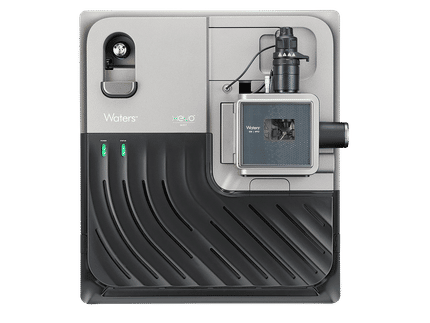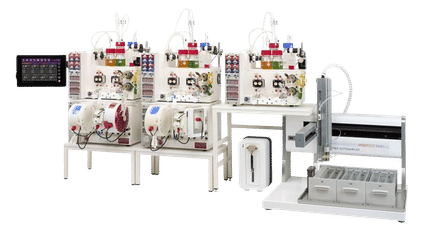To use all functions of this page, please activate cookies in your browser.
my.chemeurope.com
With an accout for my.chemeurope.com you can always see everything at a glance – and you can configure your own website and individual newsletter.
- My watch list
- My saved searches
- My saved topics
- My newsletter
Cholecystokinin
Cholecystokinin (CCK; from Greek chole, "bile"; cysto, "sac"; kinin, "move"; hence, move the bile-sac (gallbladder)) is a peptide hormone of the gastrointestinal system responsible for stimulating the digestion of fat and protein. Cholecystokinin, previously called pancreozymin, is synthesised by I-cells and secreted in the duodenum, the first segment of the small intestine, and causes the release of digestive enzymes and bile from the pancreas and gallbladder, respectively. It also acts as a hunger suppressant. Recent evidence has suggested that it also plays a major role in inducing drug tolerance to opioids like morphine and heroin, and is partly implicated in experiences of pain hypersensitivity during opioid withdrawal.[1][2] Product highlight
StructureCCK is composed of varying numbers of amino acids (e.g., CCK58, CCK33, CCK8) depending on post-translational modification of the CCK gene product, preprocholecystokinin. CCK is very similar in structure to gastrin, another of the gastrointestinal hormones, so much so that the last five C-terminal amino acids are same as those of gastrin. CCK58 comprises a helix-turn-helix configuration. Release and FunctionCCK mediates a number of physiological processes, including digestion and satiety. DigestionSecretion of CCK by the duodenal and intestinal mucosa is stimulated by fat- or protein-rich chyme entering the duodenum. It then inhibits gastric emptying and gastric acid secretion and mediates digestion in the duodenum. It acts on the pancreas to stimulate the secretion of a juice rich in pancreatic digestive enzymes. Together these enzymes catalyze the digestion of fat, protein, and carbohydrates. Thus the levels of the substances which stimulated the release of CCK drop and the concentration of the hormone drops as well. The release of CCK is also inhibited by somatostatin. CCK also causes the increased production of hepatic bile, and stimulates the contraction of the gallbladder and the relaxation of the Sphincter of Oddi (Glisson's sphincter), resulting in the delivery of bile into the duodenal part of the small intestine. Bile salts form amphipathic micelles that emulsify fats, aiding in their digestion and absorption. NeurobiologyAs a neuropeptide, CCK mediates satiety by acting on the CCK receptors distributed widely throughout the central nervous system. In humans, CCK administration causes nausea and anxiety, and weakly decreases the desire to eat.[3] The mechanism for this hunger suppression is thought to be a decrease in the rate of gastric emptying.[4] The effects of CCK vary between individuals. For example, in rats, CCK administration significantly reduces hunger in young males, but is less effective in older subjects, and even less effective in females. The hunger-suppressive effects of CCK also diminish in obese rats.[5] See also
References
Categories: Intestinal hormones | Neuropeptides |
|||||||||||||||||||||||||||||||||||||||||||||||||||||||||||||||||||
| This article is licensed under the GNU Free Documentation License. It uses material from the Wikipedia article "Cholecystokinin". A list of authors is available in Wikipedia. | |||||||||||||||||||||||||||||||||||||||||||||||||||||||||||||||||||







